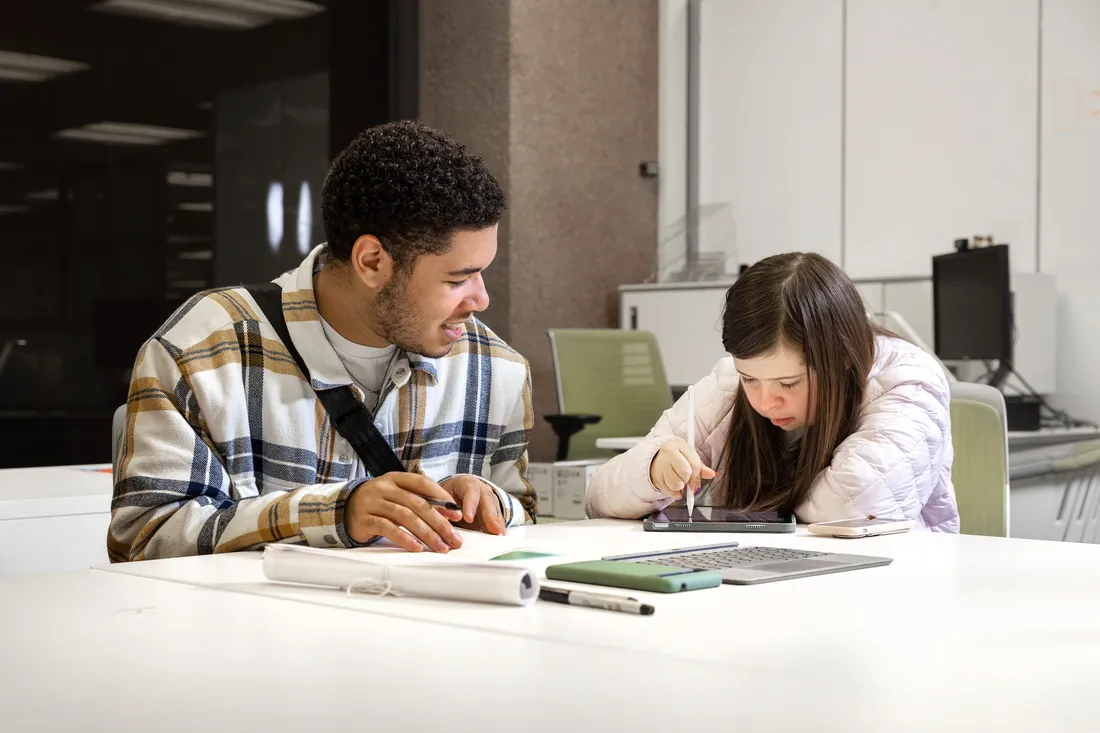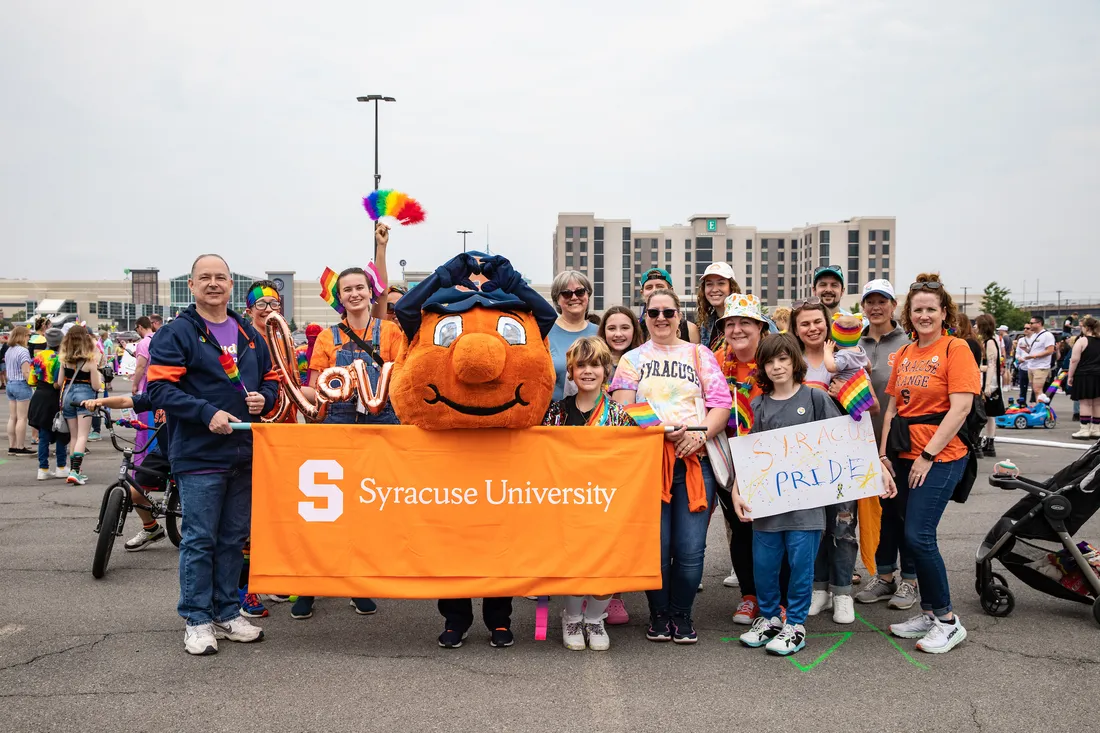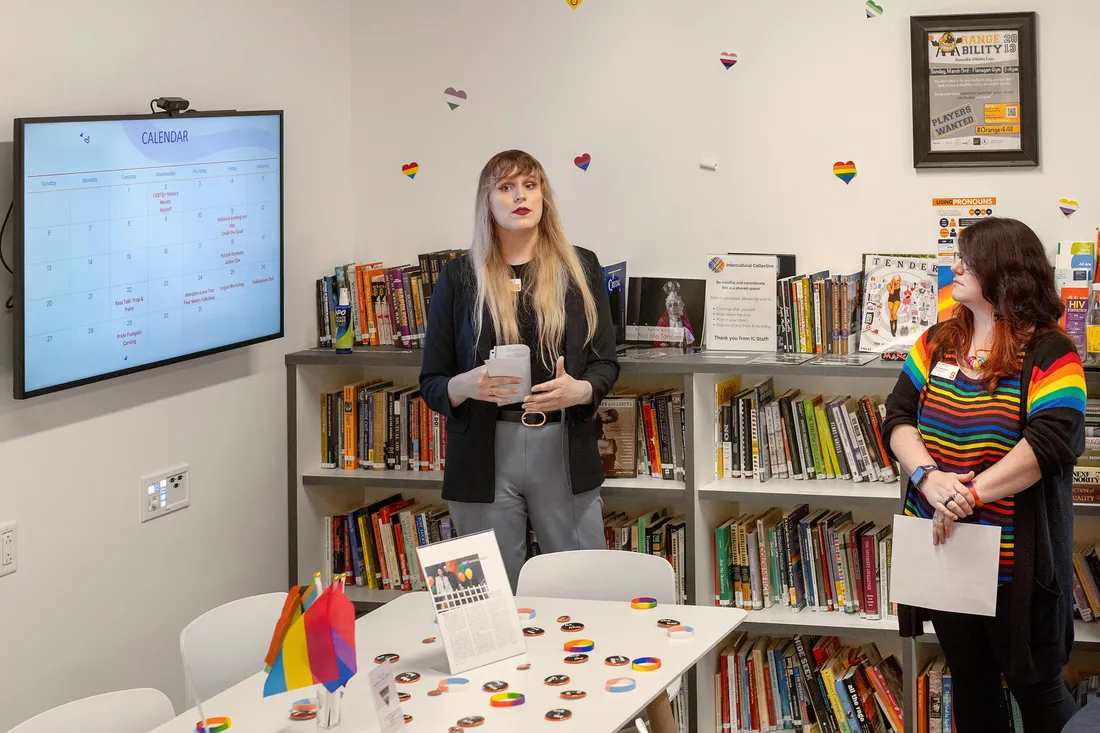
Jordan McGee (left) and Emily Stewart in the LGBTQ+ Resource Center. “Our programming is tied to the student experience,” says Stewart of the 23-year-old center, which is part of Syracuse’s Intercultural Collective.
No sooner had Emily Stewart and Jordan McGee respectively signed on as director and program coordinator of the LGBTQ+ Resource Center in August than they began planning Syracuse University’s annual LGBTQ+ History Month celebrations.
The duo has pulled out all the stops, curating an array of events and activities that are free and open to the public. That this year marks the 30th anniversary of the national LGBTQ+ History Month is indicative of the milestone’s staying power.
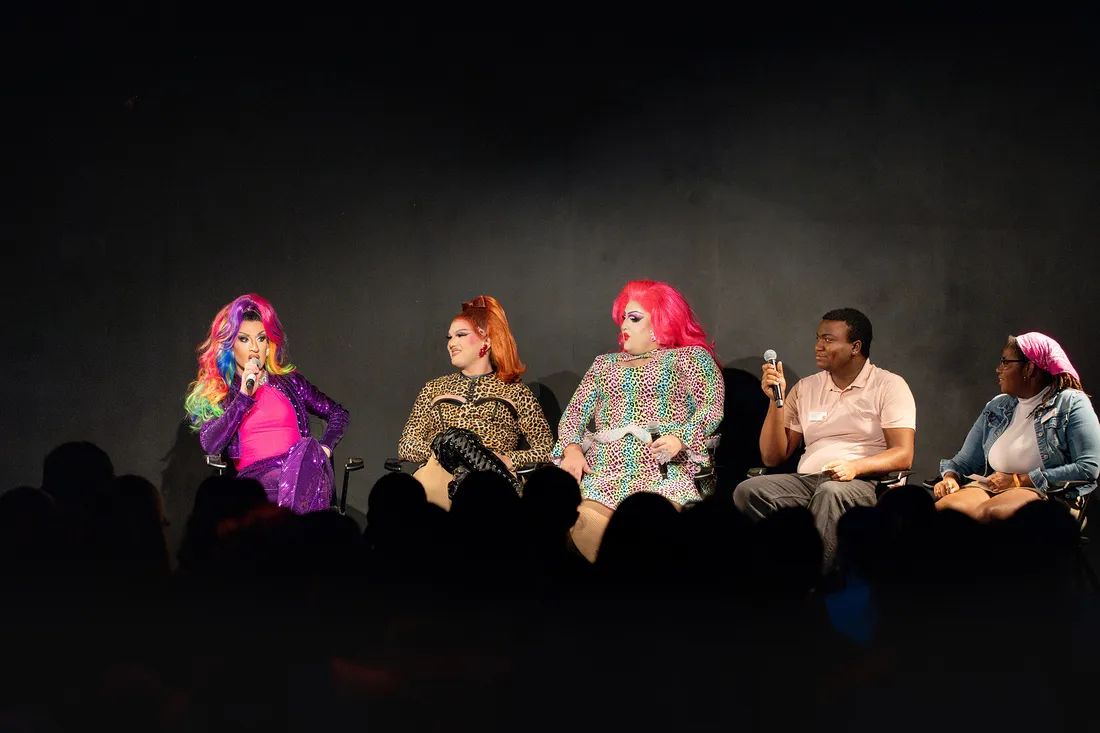
Jackie Cox (far left), a contestant on season 12 of RuPaul’s Drag Race, at the Potash Keynote Performance.
“Our programming is tied to the student experience,” says Stewart, citing, as an example, the sixth annual Potash Keynote Performance, whose namesake—Jordan Potash ’98, associate professor of art therapy at The George Washington University—helped lay the groundwork for the opening of the LGBTQ+ Resource Center in 2001. “We imbue our events with a sense of history.”
McGee echoes these sentiments, noting that queer expression contributes to a more diverse, inclusive and equitable campus. “LGBTQ+ History Month shows queer students that they not only belong at Syracuse, but also deserve to be seen and celebrated.”
The LGBTQ+ Resource Center is part of the Intercultural Collective, an umbrella organization in the Student Experience Division that fosters inclusion and belonging on campus.
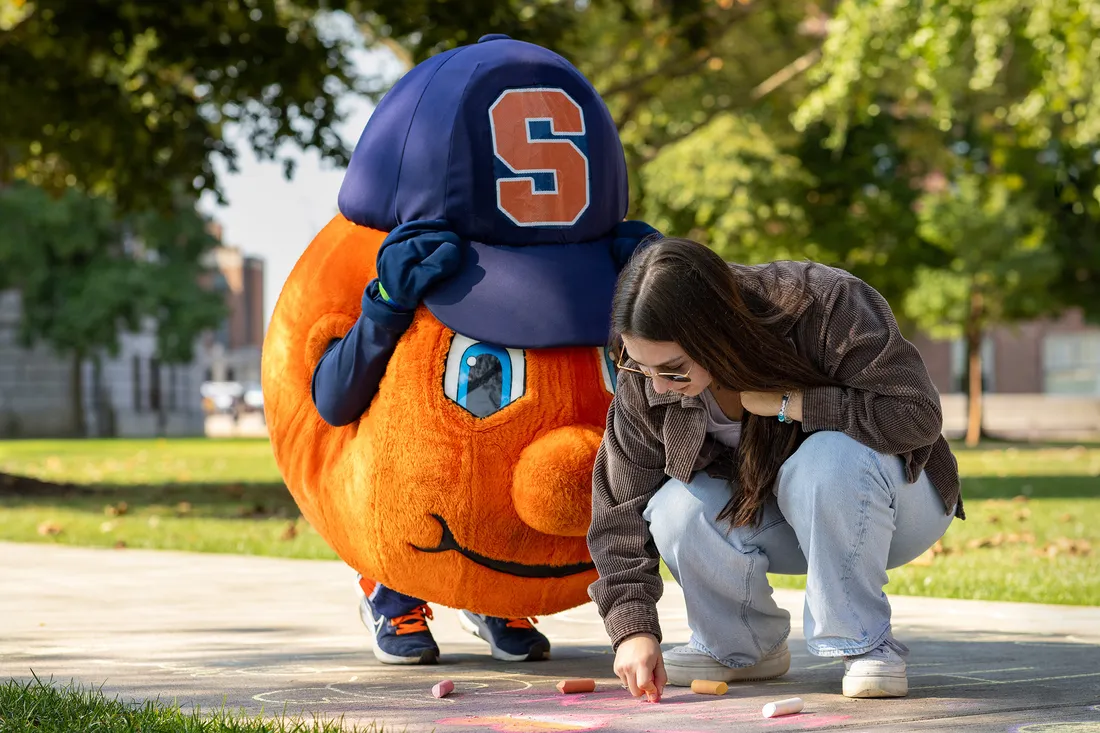
Chalk the Quad occurs annually on Oct. 11 in honor of the first National March on Washington for Lesbian and Gay Rights in 1979 and the first National Coming Out Day in 1988.
Pride Month and LGBTQ+ History Month—celebrated in June and October, respectively—are among the many ways that the University recognizes the LGBTQ+ community and their achievements.
Whereas Pride Month was inspired by the 1969 Stonewall Uprising in New York City (a flashpoint for the burgeoning Gay Liberation Movement), LGBTQ+ History Month was founded by Rodney Wilson, a Missouri high school teacher who sought to educate students about LGBTQ+ people, history and issues during the academic year.
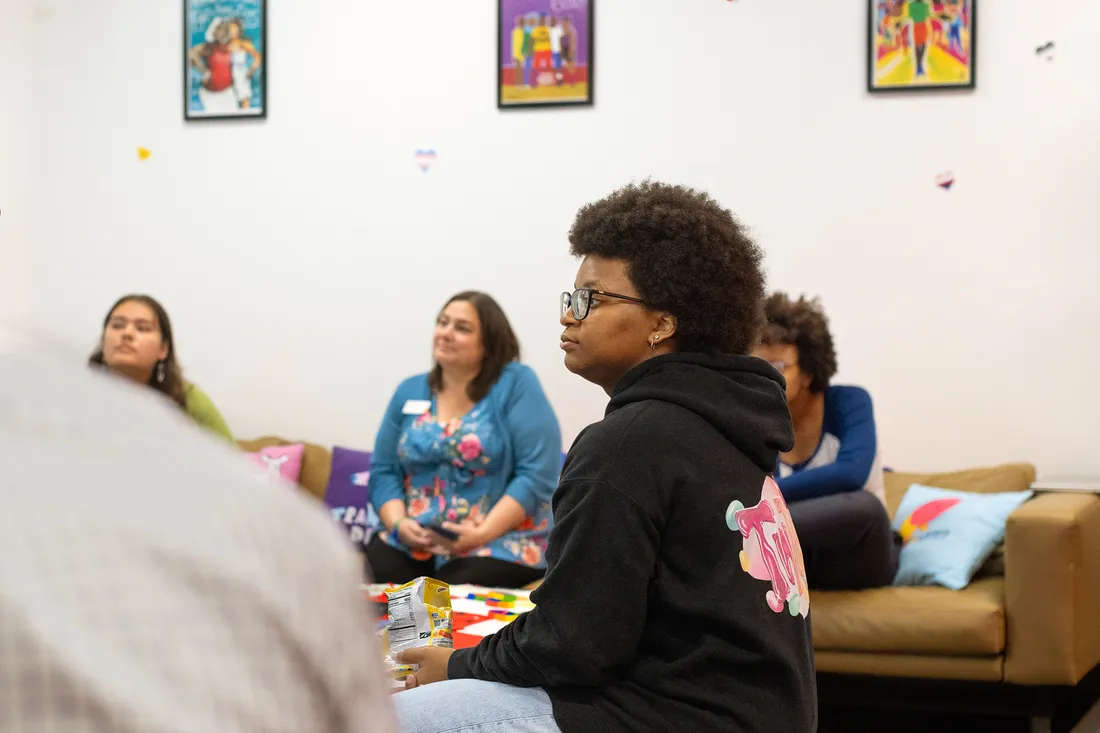
The LGBTQ+ Resource Center, which organizes the University's LGBTQ+ History Month observances, is a recognized leader in the delivery of support and education around marginalized genders and sexualities.
Located in the Schine Student Center, the LGBTQ+ Resource Center reflects the University’s broader commitment to inclusive excellence. “Students want to know that they have a place to go to without fear, explanation or denial of who they are,” Stewart says. “In addition to providing professionals who can share in their experiences, the center hosts programs like LGBTQ+ History Month to foster a sense of community across campus.”
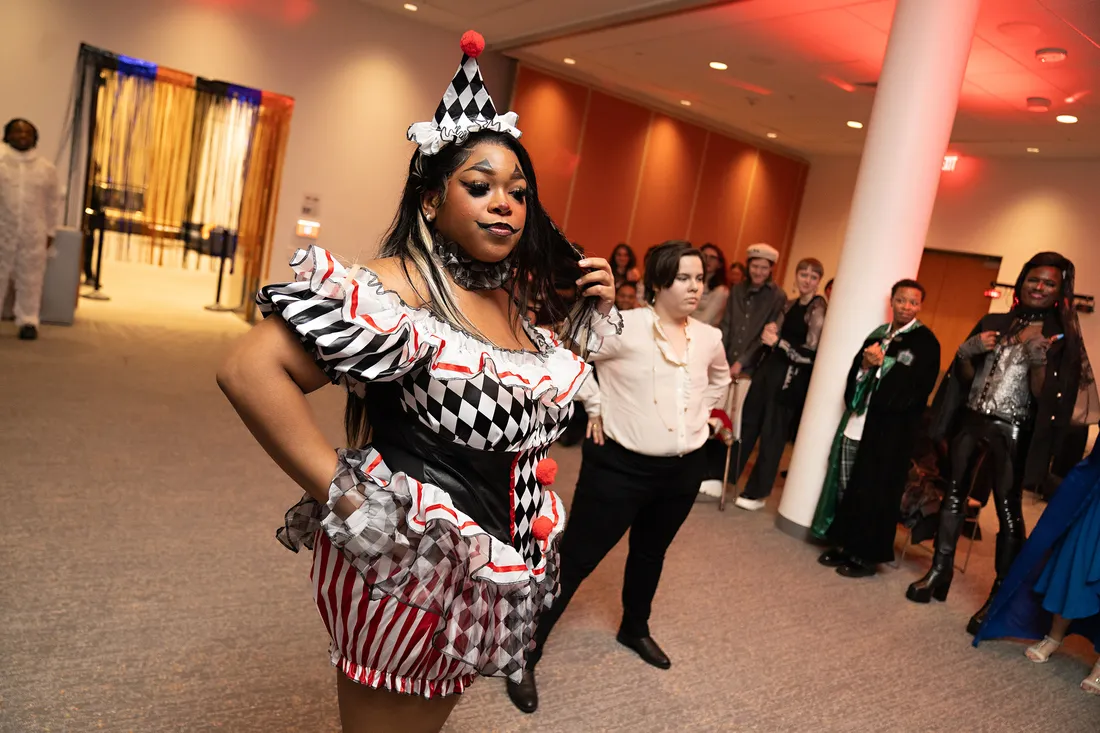
The annual HalloQueen Ball features music, dance and a costume contest.
Stewart and McGee agree that allyship—actively supporting and advocating for marginalized groups and people—has a positive effect on Syracuse’s LGBTQ+ community. “The best thing you can do is talk to us—listen to our stories, experiences and concerns as well as share in our joy,” says McGee, a transgender woman. “Coming out can be a scary experience, so we need people to help support us and celebrate who we are.”
“When students feel safe to be who they are, they succeed in all aspects of life,” McGee says. “We want to make sure everybody has the tools and resources they need to be successful.”
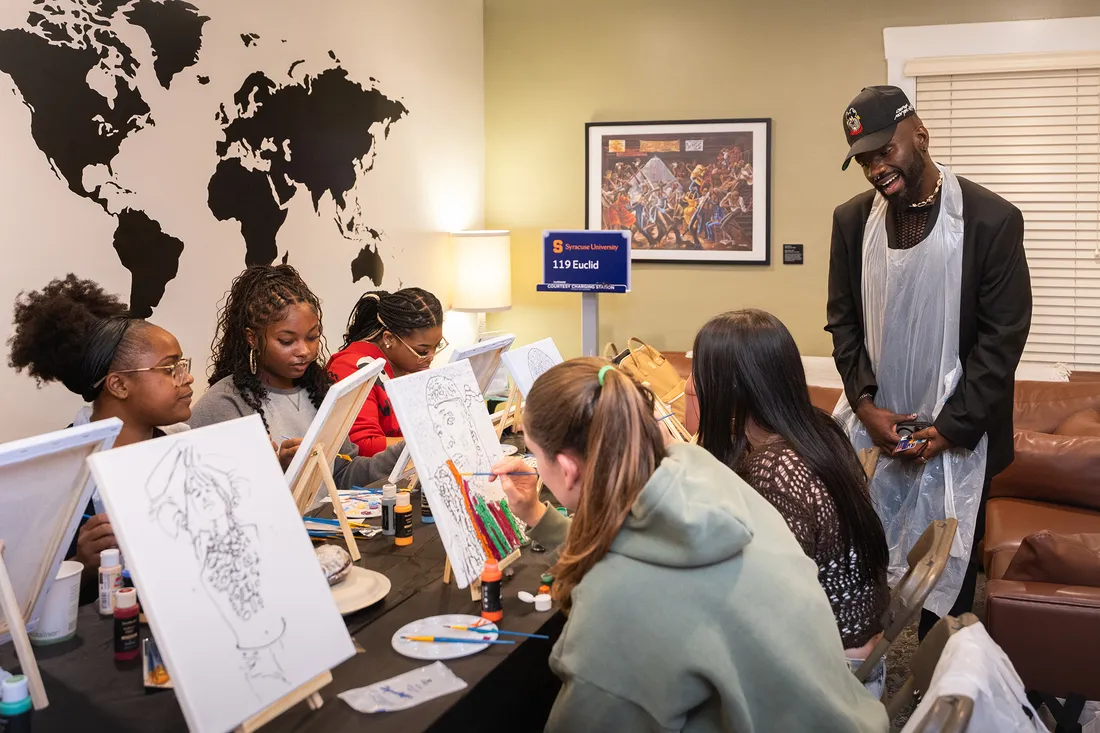
Students at a Black and Queer Trap and Paint at Syracuse's Barner-McDuffie House, which frequently partners with the LGBTQ+ Resource Center.

